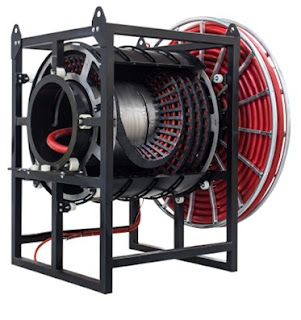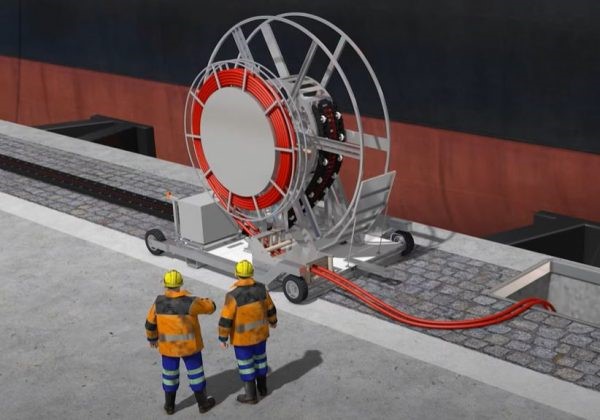This article originally appeared on https://blog.igus.co.uk/what-is-shore-power/
Shore power is a way of supplying electricity to a
ship while docked at a port. Instead of relying on its own generators, the
vessel connects to the local power grid through a shore power system, allowing
the vessel to power all onboard systems and electrical appliances without running
the engine. Therefore, it’s considered an important tool for reducing the
environmental footprint within the maritime industry and improving air quality
in port cities.
How does it work?
When a ship docks at a port
equipped with shore power infrastructure, it connects to the local electrical
grid via specially designed power sockets installed on the dock, usually
located at the ships berth for easy access. The electricity from the local grid
is then transmitted through connections to the ship’s onboard electrical
system. It may undergo voltage conversion to match the ship’s electrical
requirements. Once onboard, the power is distributed to various electrical
systems and equipment, including HVAC (heating, ventilation, and air
conditioning), refrigeration, navigation, and communication systems in the
usual way. Shore Power can also charge the ship’s batteries!
What are the benefits?
Shore power reduces air and noise pollution by allowing ships to turn off their engines while in port, thereby decreasing emissions and noise levels. It also reduces expenses associated with running on-board generators, keeping costs as low as possible. Some ports may require ships to use shore power to comply with environmental regulations aimed at reducing emissions. Overall, it provides a stable and reliable source of electricity, eliminating the need for a vessel to rely on its own generators while docked.
igus® shore power e-spool®
igus’® role within shore power
igus® has
been developing and manufacturing customised cable management systems for the
maritime industry for many years. To ensure docks reach their maximum capacity,
it’s essential that a ships’ berthing position is planned so that shore
connections are not restricted due to unsuitable cable lengths. This is where igus® provides
the flexibility necessary for your terminal and helps to minimise costs with the igus® mobile
SPO technology. The igus® e-spool® is a low maintenance and inspection
friendly motorised cable reel suitable for use in high-voltage or low-voltage shore power connections. It can accommodate up to
ten rotations allowing it to run uninterrupted from the cabinet to a junction
box!
Are there drawbacks?
As
with many things, there are some downsides to shore power. Installing this infrastructure at ports
can be expensive as the existing port facilities must be upgraded to
accommodate the new equipment and not all ships are properly equipped or even
willing to connect to it. While shore power has the potential to minimise the
impact on the environment, this is only effective if the electricity being used
is derived from renewable sources rather than fossil fuel power plants. So, its
potential is dependent on many factors that need to be carefully considered
when evaluating the feasibility and effectiveness of shore power projects but
setbacks aside, this method of supplying power is likely to be an integral part
of the future.
The future of shore power
The
future is bright, with continued growth expected in its adoption and deployment
across ports worldwide. As technology matures, regulations evolve, and
awareness of environmental issues grows, shore power is ready to play a pivotal
role in shaping a more sustainable and eco-friendly maritime industry.
Therefore, widespread adoption will be dependent upon things such as economic
feasibility and regulatory support to encourage co-operation from less
convinced parties. With proven and trusted products, igus® can
offer continued support and solutions to this industry.



Comments
Post a Comment